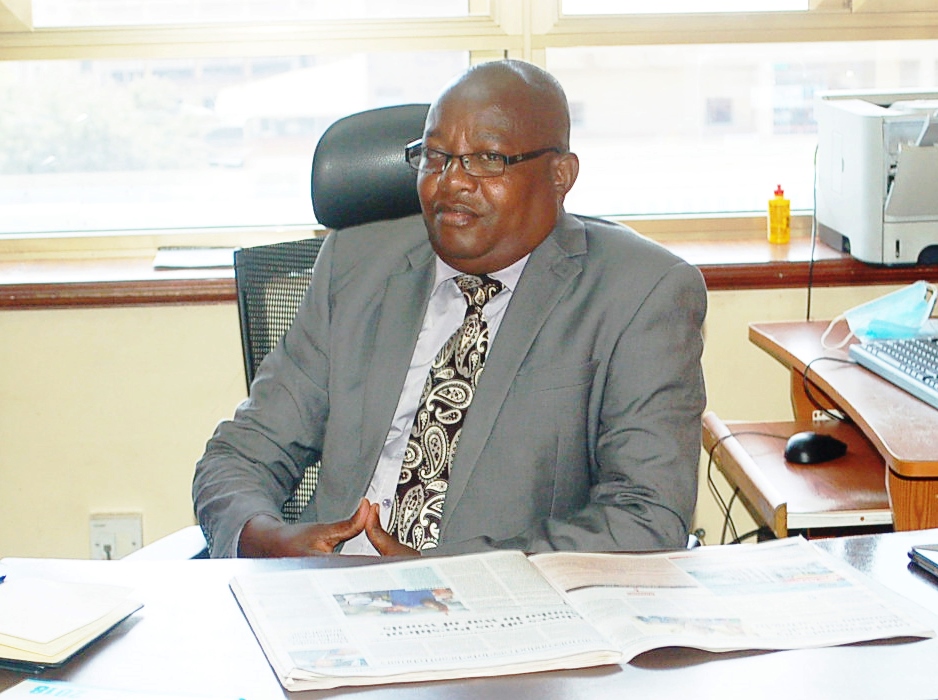By Roy Hezron
Kenya Society of Professional Co-operators (KSPC), a sector professional organization in the cooperative movement of Kenya, has come up with regulation guidelines that seek to root out cooperative quacks.
The move is meant to bring order in the Co-operative movement in the country which has accumulated asset base of over Sh. 1 trillion and in spirit of the National Co-operative Policy and the Co-operative Societies Bill as the country marks 100th Ushirika Day on July 2, 2022.
According to the Society’s acting Chief Executive Officer (CEO) Symon Mburia, all persons involved in the management of Co-operatives in the country must be members of KSPC.
Every Co-operative Officer or Co-operative Manager will therefore be required to subscribe to a code of professional and ethical standards.
“Any non-professional activity by any of KSPC members will be dealt with appropriately through withdrawal of practicing licences or other sanctions as KSPC may deem fit,” Mburia told Sacco Review.
The acting KSPC boss defends the move noting that is intended to inculcate a professional and ethical culture within the sector therefore improving the face of the sector, hence the sector professionals will receive the respect they deserve and move the sector ahead with confidence.
“KSPC will also protect its members against unfair targeting and therefore any of our members doing the right thing need not to worry. This in the long run, will introduce stability and protect the sector from Co-operative quacks,” added Mburia.
The National Co-operative Policy identifies professionalism as a concern that requires to be addressed to ensure sustainable growth of co-operatives.
Incidences of poor governance and unprofessional practices continue to be reported from some co-operatives seriously denting the image of the entire co-operative sector.
According to Mburia, the weak governance is characterized by ineffective leadership, micro-management of co-operative societies by the boards of directors, unethical business practices, inadequate application of good financial management and lack of effective member participation.
Mburia says the cooperative sector has more than 23,000 registered institutions and regulating such a number of institutions effectively may not be practical hence an industry self-regulation mechanism became necessary for the sector practitioners.
“The cooperative sector has more than 23,000 registered institutions, regulating such a number of institutions effectively may not be practical and an industry self-regulation mechanism became necessary for the sector practitioners,” he said.
KSPC was registered in the year 2017 under the Registrar of Societies as a non-profit making member-based organization, hence being an industry led initiative to promote professionalism, co-operative philosophy and practice in the co-operative movement.
Since its establishment, KSPC has achieved a number of things including enhancing member recruitment activities whereby it has managed to recruit 415 members.
It has also developed a five (5) years’ 2021-2025 strategic plan currently under implementation and developed and reviewed the Certified Cooperative Professional (CCOP) examination curriculum.
With concurrence from the Kenya National Qualifications Authority (KNQA), KSPC has also established partnership with Kenya Accountants and Secretaries Examination Board (KASNEB) through a signed Memorandum of Understanding (MOU) to administer Certified Cooperative Professional (CCOP) exams currently open to any willing person.
Once KSPC builds the required capacity, it will take it up the role.
The Society has also managed to develop various policies that include Human Resource Policy (draft), Member recruitment policy, Examination policy Manual; and also accredited various training institutions to train on the CCOP programme examinable by KASNEB.
It has also developed a draft KSPC Act which is pending final stakeholder validation and enactment, and also developed and operationalized various organs of KSPC which include the Registration Board, the Cooperative Academy, the Research and Curriculum Board.
In addition, in the general field of management, human resource management; procurement, finance, etcetera had been recognized as distinct professions.
Cooperative management previously was not recognized as a profession and therefore those who underwent cooperative training were not considered as professionals and were disadvantaged compared to others.
“Analysis of the current situation depicts a sector that has been infiltrated by all manner of ‘consultants’ many of whom have no basic understanding of the co-operative model, its philosophy, values and practice,” Mburia said.
The government has developed various institutional and regulatory mechanisms to promote professionalism and good governance, which include establishment of Ethics Commission for Co-operatives (ECCOs), an industry-based remedy has been identified to be a better option.
The Society has managed to hold leader’s conferences and meetings to sensitize members its existence and benefits, carried out continuous professional development activities, Webinars and workshops in order to seek common professional approaches to common challenges.
It has also entered into a working relationship with DGRV towards developing various standards for cooperative professionals.
Some of its objectives include promoting the co-operative management as a profession, register persons who meet the required professional and ethical standards and issue Certificates and establish publish, monitor standards of professional competence and practice amongst members among others.



